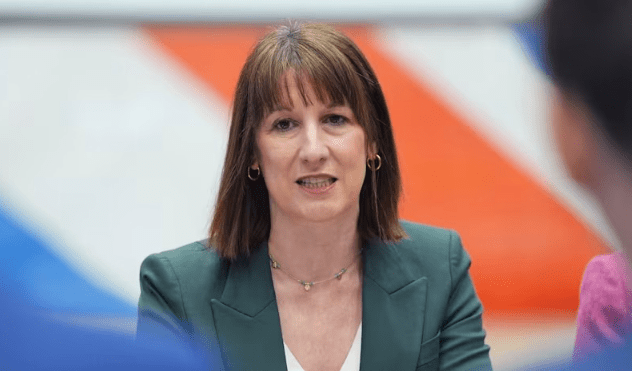The UK government borrowed significantly more than anticipated in the past financial year, amplifying pressure on Chancellor Rachel Reeves as she heads to Washington in a bid to shield British exporters from looming US tariffs.
According to fresh data from the Office for National Statistics (ONS), public borrowing hit £151.9 billion in the year to March, £20.7 billion more than the previous year and nearly £15 billion higher than the forecasted £137.3 billion.
This financial overshoot has intensified speculation that Reeves may be forced to announce spending cuts or tax hikes in the upcoming Autumn Budget to adhere to her fiscal rules.
With the UK facing stiff tariffs on exports to the United States, Reeves is expected to push for a trade agreement during her visit to Washington. The goal: to avert further damage to an already strained UK economy.
U.S. Vice President JD Vance struck a hopeful note, stating there was a “good chance” of reaching a trade deal. Such a move would be critical, as tariffs risk making British goods less competitive in the American market.
Chief Secretary to the Treasury Darren Jones was firm in his stance, saying the government’s borrowing rules are “non-negotiable”. “We will never play fast and loose with the public finances,” he stated.
However, the latest numbers suggest keeping to those rules won’t come easily. Ruth Gregory, Deputy Chief UK Economist at Capital Economics, warned that the overshoot came “even before the influence from the tariff chaos is felt”, — making “more tax hikes” likely in the months ahead.
“Reeves may not be too far away from having to raise money again in the Autumn Budget, by cutting spending and/or raising taxes, to meet her fiscal rules,” she added.
A perfect storm of low economic growth and soaring interest rates on government debt is fuelling concerns. One of Reeves’ primary fiscal rules forbids borrowing to fund day-to-day spending, but adhering to that may now require tough political choices.
According to Grant Fitzner, Chief Economist at the ONS, higher spending on wages and benefits was a key driver of the borrowing increase. This came despite the government enjoying a “substantial boost in income” from taxation.
He noted that the UK’s debt remains close to the annual value of its economic output, levels not seen since the early 1960s. Last month alone, interest payments on government debt surged by £1.3 billion, reaching £4.3 billion.
James Smith, markets economist at ING, described the situation as “a very challenging environment for the government.” “I think it puts pressure on them to potentially raise taxes again later this year,” he said.
The borrowing figures have sparked a political storm. Shadow Chancellor Mel Stride labelled them “alarming, but not surprising”, blaming the rise squarely on Reeves’ decisions.
“They lay bare the price the British people are paying for Rachel Reeves’ choices,” he claimed. Meanwhile, Liberal Democrat Treasury Spokesperson Daisy Cooper called the figures “damning” and urged Reeves to ditch “her disastrous jobs tax.”
Darren Jones insisted the government is taking a tough stance on efficiency: “We are going through every penny of taxpayer money spent, line by line, for the first time in 17 years to tear out waste.”
Adding to the woes, the International Monetary Fund (IMF) this week downgraded the UK’s growth forecast for 2025, now expecting just 1.1% growth, down from 1.6%.
The IMF blamed the tariff environment, rising inflation, and elevated borrowing costs as key contributors to the slowdown.
For a government that has made economic growth its “top priority”, the downgrade is a stinging blow.
With borrowing ballooning and growth stalling, the UK’s economic path looks increasingly difficult to navigate. Chancellor Reeves faces mounting pressure on all fronts — from US tariffs and rising debt costs to political backlash and the looming need for budget adjustments.
Whether a transatlantic trade deal can offer some economic breathing room remains to be seen, but for now, the message is clear: Britain’s finances are under growing strain, and tough decisions lie ahead.






